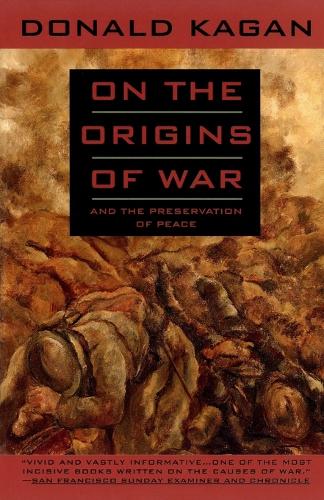
On the Origins of War: And the Preservation of Peace
(Paperback)
Publishing Details
On the Origins of War: And the Preservation of Peace
By (Author) Donald Kagan
Random House USA Inc
Anchor Books
1st January 1996
1st January 1996
United States
Classifications
Tertiary Education
Non Fiction
904.7
Physical Properties
Paperback
624
Width 132mm, Height 203mm, Spine 35mm
505g
Description
A brilliant and vitally important history of why states go to war, by the acclaimed, award-winning author of The Peloponnesian War. War has been a fact of life for centuries. By lucidly revealing the common threads that connect the ancient confrontations between Athens and Sparta and between Rome and Carthage with the two calamitous World Wars of the twentieth century, renowned historian Donald Kagan reveals new and surprising insights into the nature of war and peace. Vivid, incisive, and accessible, Kagan's powerful narrative warns against complacency and urgently reminds us of the importance of preparedness in times of peace.
Reviews
Praise for Donald Kagan's On the Origins of War
A particularly timely masterpiece . . . brilliantly examines the origins of four major, devastating conflicts.Los Angeles
Humane and penetrating . . . Kagan shows how, tragically, measures undertaken precisely to prevent war have in the past repeatedly brought it closer.The New Criterion
By now it is all too clear that the so-called end of history really has meant the return of history, with a vengeance. Recent events regrettably confirm that warfare is inherent to any system of world affair yet imagined, so we better do all we can to prevent it. Professor Kagan's impressive volume presents thoughts that are timely, intellectually deep, and just about indispensable.George P. Schultz, Former U.S. Secretary of State
Author Bio
Donald Kagan is Sterling Professor of Classics and History at Yale University. A former dean of Yale College, he received his Ph.D. in 1958 from The Ohio State University. His publications includeOn the Origins of War and the Preservation of Peace,The Peloponnesian War, andThucydides- The Reinvention of History. In 2002 he was the recipient of the National Humanities Medal and in 2005 was named the National Endowment for the Humanities Jefferson Lecturer.
